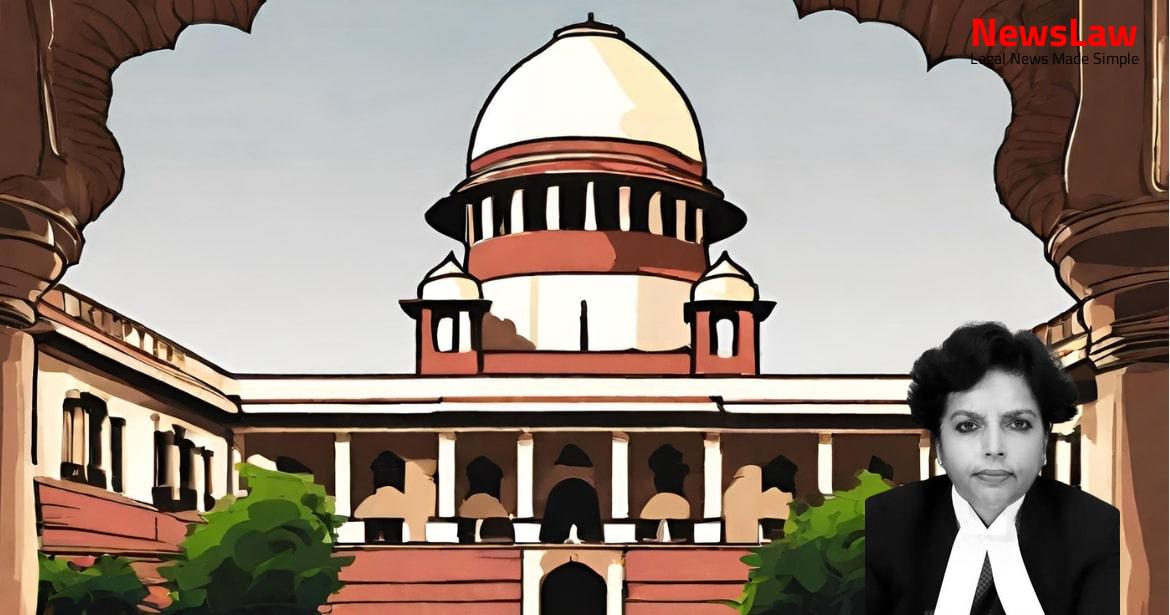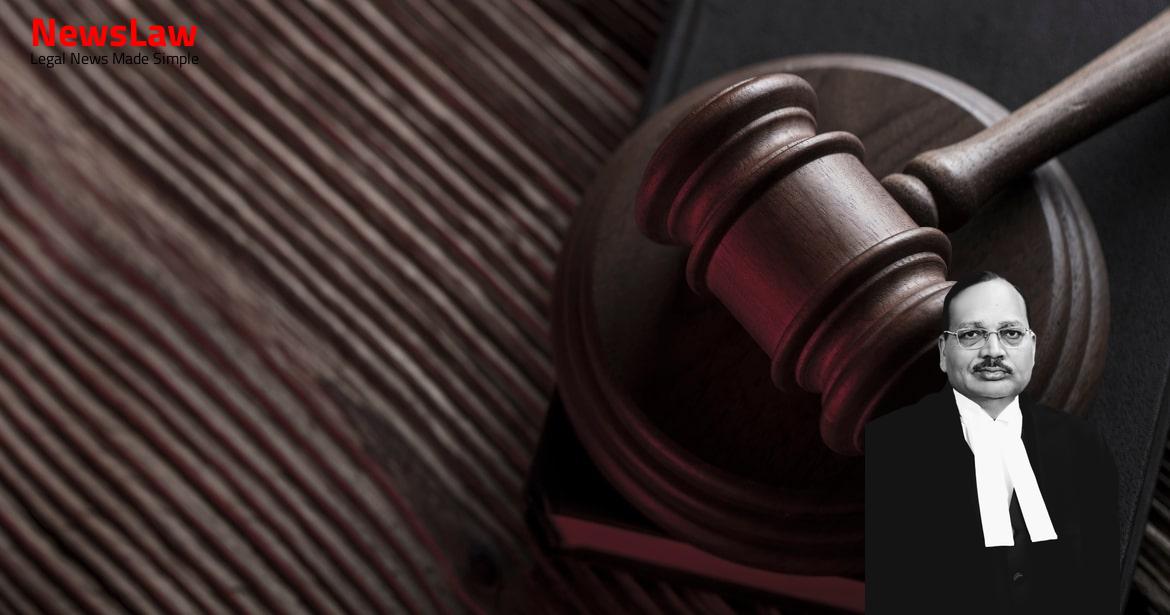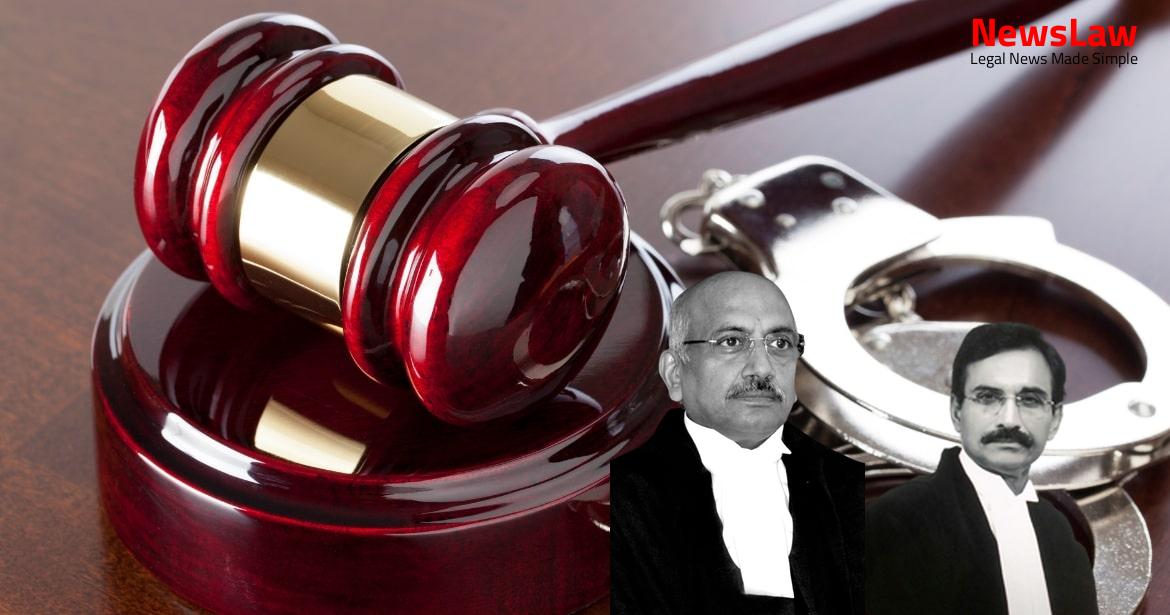In the case of Susela Padmavathy Amma vs. Bharti Airtel Limited, the appellant challenges the dismissal of quashing petitions related to director liability. The High Court’s judgment addresses the vicarious liability of directors under the Negotiable Instruments Act. Specific averments against directors are necessary to establish criminal liability. The appellant, not involved in day-to-day affairs, seeks to refute accusations. Let’s delve into the details of this significant legal precedent.
Facts
- Fibtel Telecom Solutions approached Bharti Airtel Limited for obtaining telecom resources.
- Despite reminders, Fibtel Telecom Solutions failed to clear dues to Bharti Airtel Limited.
- Five post-dated cheques were provided by Fibtel Telecom Solutions to Bharti Airtel Limited.
- Cheques were subsequently returned unpaid with reasons like ‘payment stopped by drawer’.
- Legal notices were issued, and a payment schedule was agreed upon, with one cheque honored.
- Four remaining cheques were returned unpaid leading to criminal complaints filed.
- The High Court dismissed the quashing petitions and directed the trial court to expedite the case.
- The appellant, Susela Padmavathy Amma, filed the present appeal against the rejection of quashing petitions.
Also Read: State vs. Appellant – Criminal Appeal No. 643 of 2008
Arguments
- The appellant, an aged lady, was not involved in the day-to-day affairs of the Company.
- There are no averments in the complaint indicating that the appellant was in-charge of day-to-day affairs.
- The High Court erred in not allowing the petition for quashing of criminal complaints against the appellant.
- Accused No.2 was the signatory to the cheque, not the appellant.
- The appellant was also not a signatory to the cheque in question.
- Shri Lakshmeesh S. Kamath, learned counsel for the respondent, argued in favor of the High Court’s decision.
- The learned judge of the High Court carefully examined the material on record before dismissing the petition to quash criminal complaints against the appellant.
Also Read: Appeal Against Quashed School Construction Proposal
Analysis
- Merely being a director in a company does not automatically make a person liable for offenses committed by the company under Section 141 of the Negotiable Instruments Act.
- Specific averments must be made against a director showing how and in what manner the director was responsible for the conduct of the company’s business at the time of the offense.
- Directors must be in charge and responsible for the business affairs of the company at the time of the offense to be held criminally liable.
- The role and liability of a director in a company depend on the specific facts of each case and cannot be generalized.
- Vicarious liability under Section 141 must be strictly construed, requiring clear statements of fact to establish a director’s responsibility for the company’s conduct.
- Mere reproduction of statutory language without factual support does not establish vicarious liability for a director.
- The complainant must show how a director was in charge of the company’s business or responsible for its conduct to make the director vicariously liable.
- Clear evidence of the director’s role in the company’s affairs is necessary to establish liability for offenses committed by the company.
- Knowledge, consent, or negligence on the part of a director can make them liable for offenses committed by the company.
- The Court upholds the judgment of the High Court for a different reason.
- Being a director does not automatically make a person liable under Section 34(1) of the Act.
- Accused No. 2 is the authorized signatory responsible for the company’s affairs.
- Simply being a director does not prove being in charge of the company’s business.
- Accused No. 2 and Accused No. 3 have no intention to pay the dues owed to the complainant.
- Accused No. 2 and Accused No. 3 are directors and promoters of the company.
- The three respondents were being prosecuted as directors of the manufacturers under Section 34(1) of the Act.
- Section 34(1) of the Act establishes the vicarious liability of a person for an offence committed by a company if, at the time of the offence, he was in charge of and responsible for the conduct of the company’s business.
- Merely being a director of the company does not automatically make a person liable for the company’s offences.
- The person can avoid liability if they prove the offence was committed without their knowledge or if they took all due diligence to prevent it.
- The appellant is neither the Managing Director nor the Joint Managing Director of the Company in question.
- The averments made are insufficient to invoke the provisions of Section 141 of the N.I. Act against the appellant.
- There is no mention or averment that the appellant is in charge of or responsible for the day-to-day affairs of the Company.
Also Read: Contempt of Court in Land Dispute
Decision
- Proceedings in CC Nos. 3151 and 3150 of 2017 on the file of learned XVIII Metropolitan Magistrate, Saidapet, Chennai, now transferred to Metropolitan Magistrate, Fast Track Court-III, Saidapet, Chennai, are quashed and set aside as per the offense under Section 138 read with Section 142 of the N.I. Act.
- Present appellant is not liable in connection with the mentioned offence.
- The appeals are allowed in favor of the present appellant.
- The judgment and order by the High Court dated 26 April 2022 are quashed and set aside.
Case Title: SUSELA PADMAVATHY AMMA Vs. M/S. BHARTI AIRTEL LIMITED (2024 INSC 206)
Case Number: Crl.A. No.-001577-001578 / 2024



